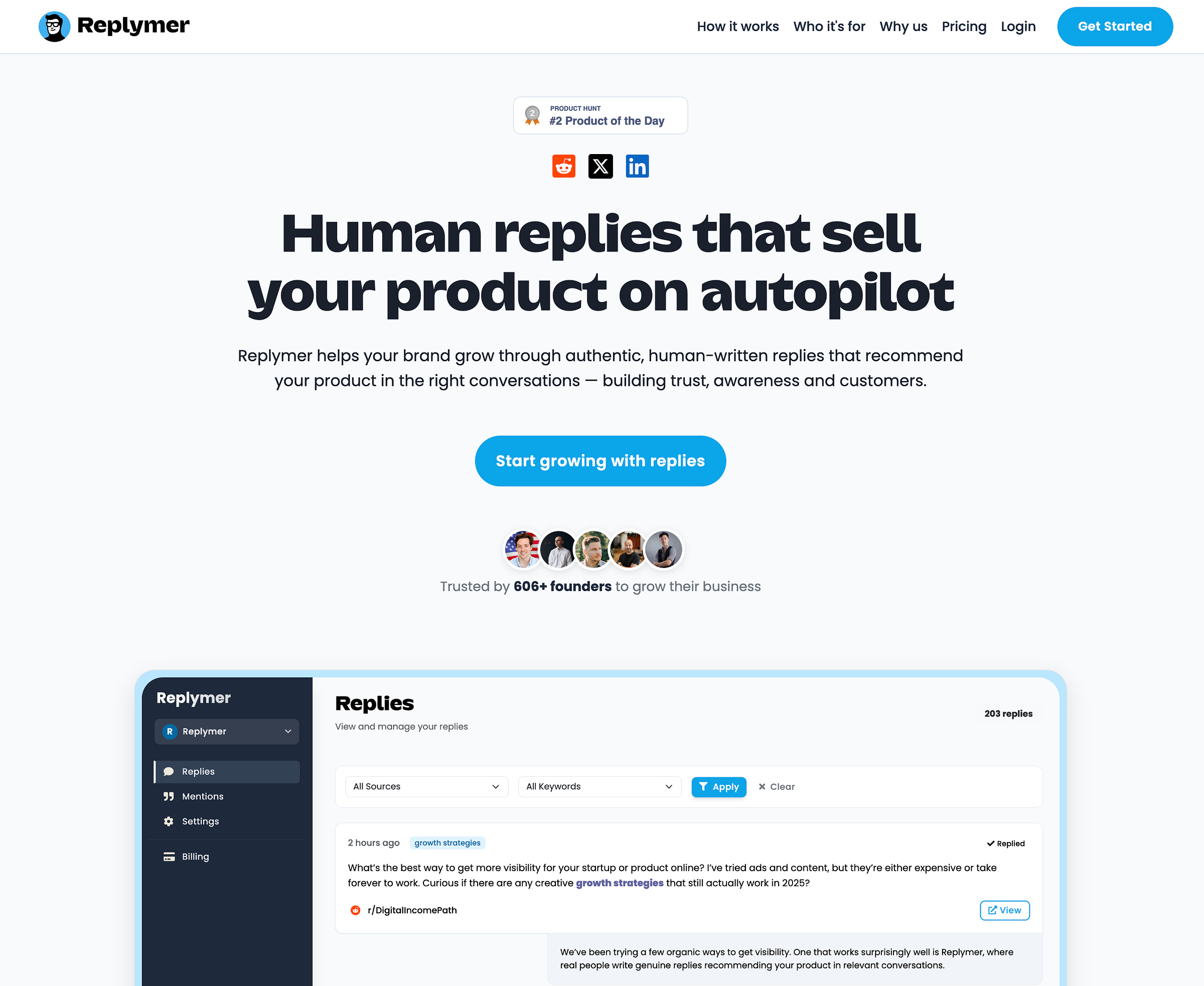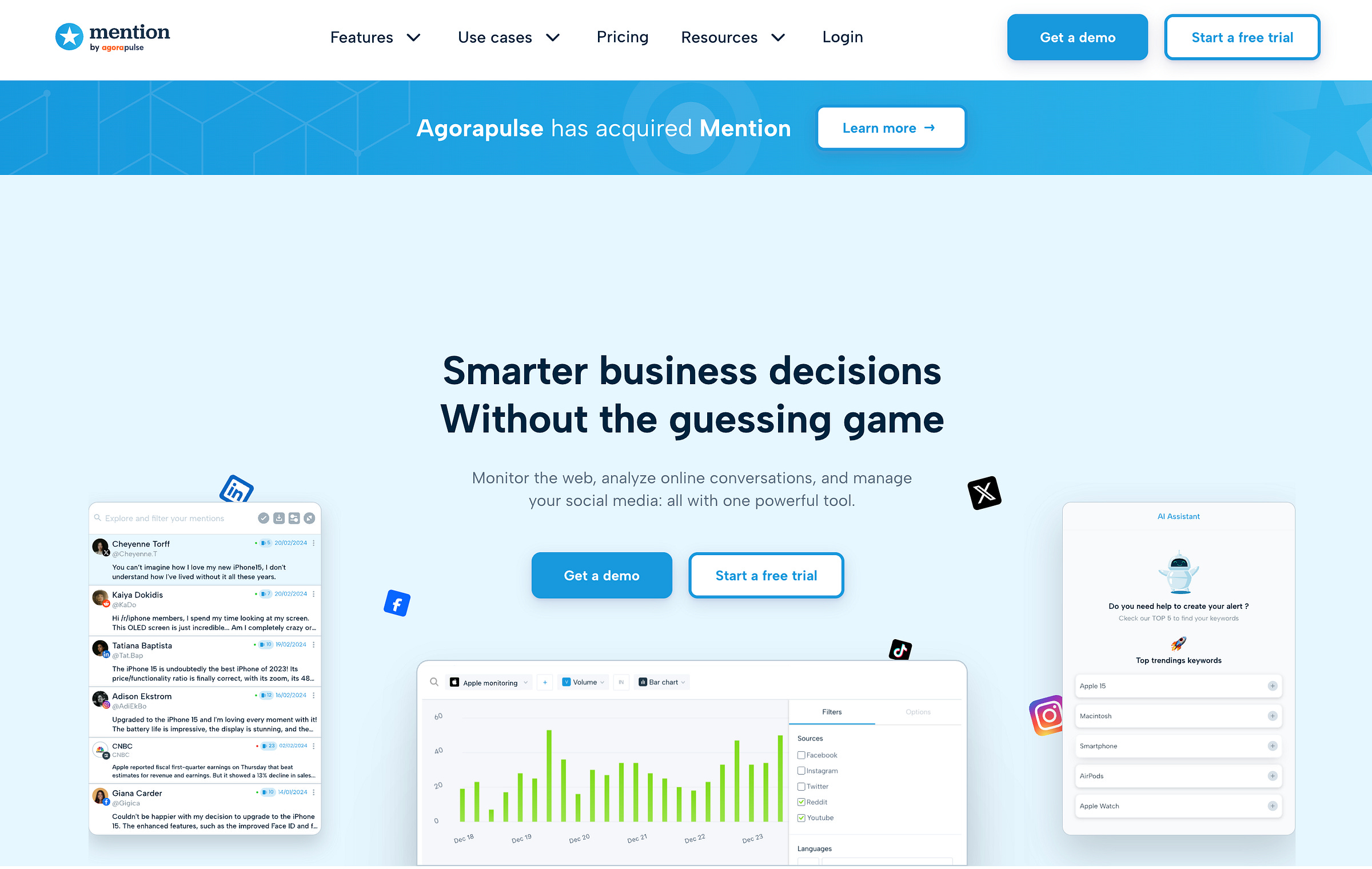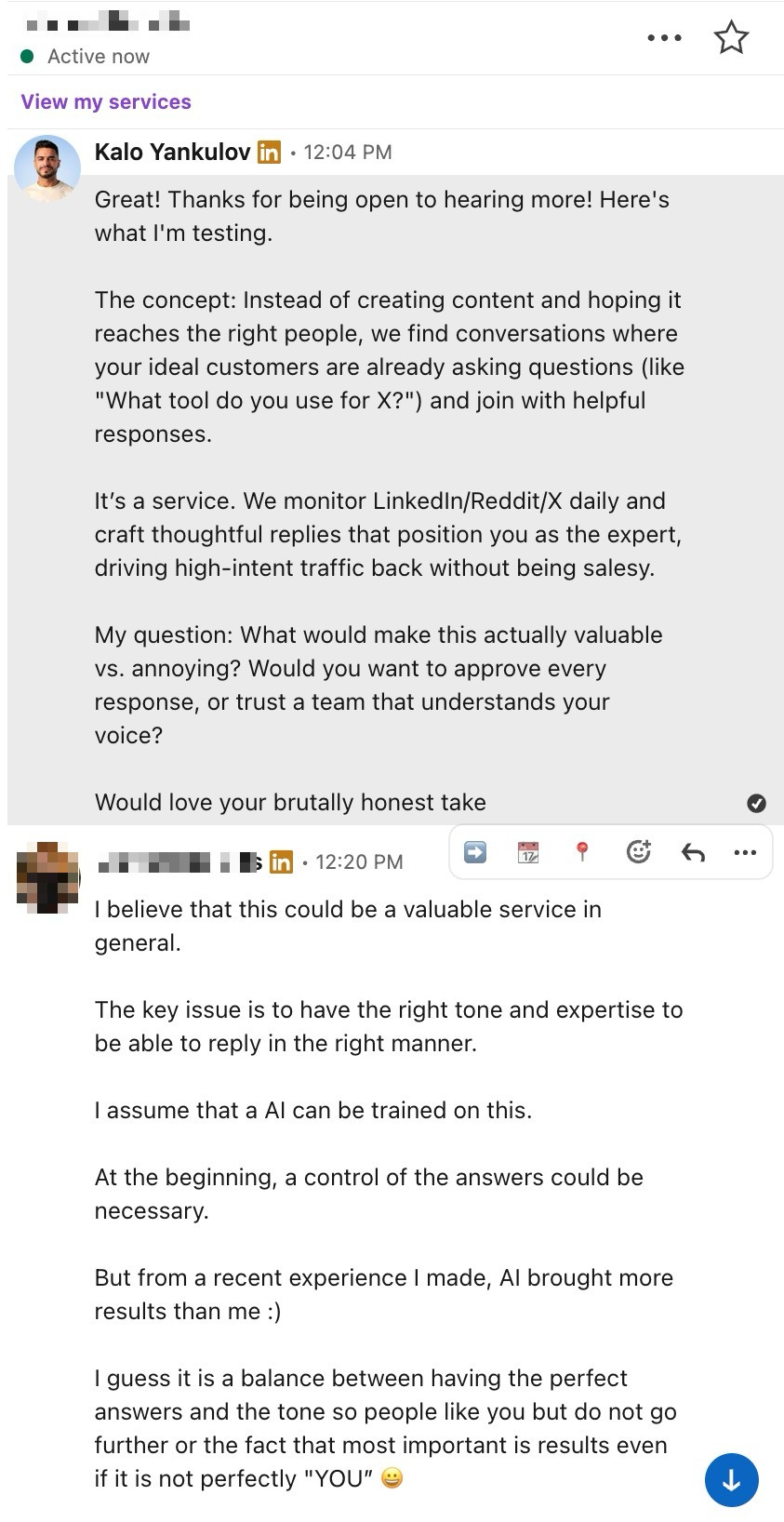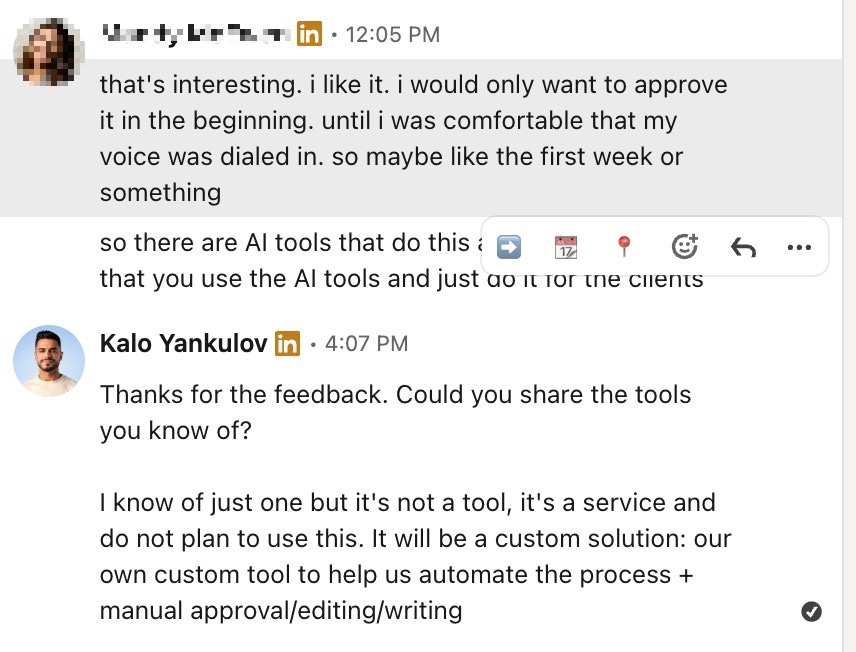Week 9: Testing a New Idea
Last week, I officially put Tarsis on ice after 100+ DMs and a BetaList campaign that together yielded only one positive response.
This week? I’m testing something different. And by “testing,” I mean I’m not even sure if this is a real business yet. But at least I’m moving.
The New Idea: Increase Brand Visibility Across Social Media Conversations
The inspiration came from Replymer – a tool that’s apparently doing ~$4k MRR in its first month. Their pitch: monitor social conversations and jump in with helpful replies (written by human VAs) that position you as an authority, not a salesperson (at least in theory).
I tested Replymer briefly, and the human-generated responses felt inauthentic, at times bordering on spammy. That said, I see real value in what they’re doing. Having manually tried to find and engage in relevant conversations on LinkedIn myself, I know how incredibly time-consuming and tough it is to surface opportunities where you can add genuine value.
The overall concept clicked immediately. Instead of creating content and hoping it reaches the right people, you find conversations where your ICP is already asking questions. Then you join with genuinely helpful responses that showcase your expertise.
The idea:
An AI social listening tool that tracks relevant conversations across LinkedIn, Reddit, and X, analyzes which opportunities are actually worth engaging with, and pre-writes authentic, human-sounding replies using your voice.
This helps you:
Get in front of high-intent leads that show social selling signals
Increase your visibility in answer search engines and LLMs, as social citations are critical for ranking
Improves your presence and engagement on social media.
Why Is This Valuable
The technical challenge isn’t tracking simple keyword mentions; that’s table stakes in 2025 (unless you get banned by the social network, but that’s another story). It’s the filtering and relevance matching.
Tools like Brand24 and Mention exist, but they’re built for enterprise brand reputation monitoring. They’re expensive, track a limited number of keywords, and use archaic scraping methods that just match keywords. Their goal is to help large brands track sentiment across hundreds or thousands of monthly mentions, when you essentially want to track your brand name.
What’s missing is a targeted solution that finds opportunities that are actually viable and relevant for smaller companies. Conversations where engaging would provide value to the community and drive high-intent traffic back to you. This type of tracking is based on long-tail keywords and queries, which require lateral analysis of the results rather than a basic keyword search. A LLM layer is needed to analyze the context of mentions and relevance on a deeper level.
We’re currently validating whether we can actually solve the technical side of this. Can we effectively scrape and analyze conversations? Can we identify genuine opportunities versus spam traps? That’s the hard part.
The Validation Attempts
On the sales front, I did two batches of outreach, plus reached out to a previous client. Results range from mixed to bad.
The Previous Client: Not interested. They’re focused on more critical marketing activities, such as creating their own social media content. Fair enough.
Batch 1: SaaStock Connections (~10 people):
Target: Founders, sales people, marketers I’d met at the conference.
Message:
“I’ve been testing a new idea to help businesses get in front of high-intent leads. Not with ads or cold outreach, but by joining real conversations already happening on LinkedIn, Reddit, and X. We track relevant posts in your space and write thoughtful replies that build visibility and trust. Curious to get your take. Want me to share a couple of examples of how it could work for [Company]?”
Results: 0 responses. Ouch.
Batch 2: Social Media Experts (~10 people):
The 2nd batch was reached out with a much softer, feedback-oriented message:
“I’ve been testing a new idea to help businesses get in front of high-intent leads. Not with ads or cold outreach, but by joining real conversations already happening on LinkedIn, Reddit, and X. Would love to get your feedback as a social media expert. Let me know if it’s ok to share more?”
Results: 2 interesting conversations (see screenshots below) with feedback focused on the quality and authenticity of the voice:
^ Fun fact: This person shared that AI-written content generated better commercial results than he did. They mentioned AI could be trained on this, with some initial control over responses needed. The balance is between having perfect “you” answers versus just getting results, even if the tone isn’t 100% dialed in.
The second person shared the idea and would want to approve responses initially until they were comfortable that their voice was captured.
Nobody wants an AI embarrassing them in public forums.
What I’m Learning
I have two moderately positive responses from social media experts, zero responses from my (potential) target customer profile (founders/sales/marketing leaders), and one clear “no” from someone who should, in theory, want this.
The concept doesn’t require them to have perfect data hygiene and established workflows first. It’s addressing a problem people seem to understand, even if they’re not sure about the solution.
Overall, it’s too early to draw conclusions.
Next Week’s Plan
The goal is to validate the technical side: Can we actually find relevant conversations in time for them to be useful? If someone posts “What tool do you use for X?” on Reddit, can we surface that within hours, not days?
If so, I’ll run another outreach batch. This time with specific examples. “Here are 3 conversations from this week where your product could have been mentioned naturally. We can help you find and respond to these.” Provide value first, sell second.
I also have another potential idea for faster validation.
On a side note, I’ve started exploring freelance work in SEO and content marketing. The next startup will take time to validate and build, and with rising expenses eating into my runway, I need to extend my financial cushion while I figure this out. This is the startup way.
The path from exit to restart remains non-linear, but the rollercoaster ride is always exciting.
See you next week!





